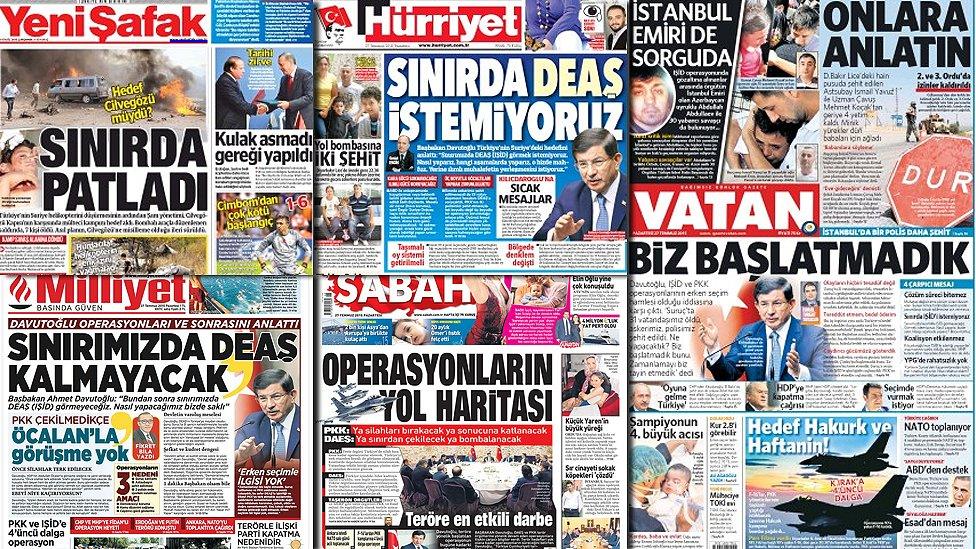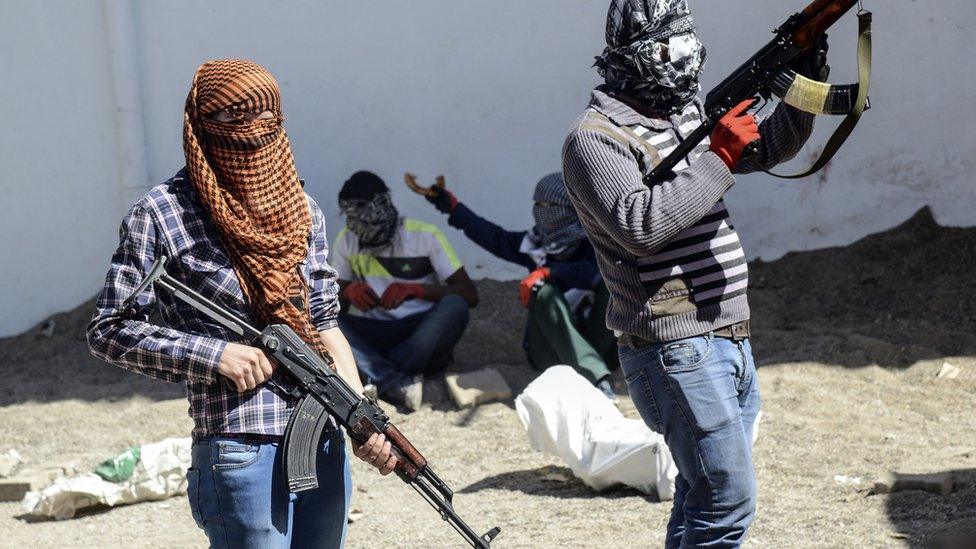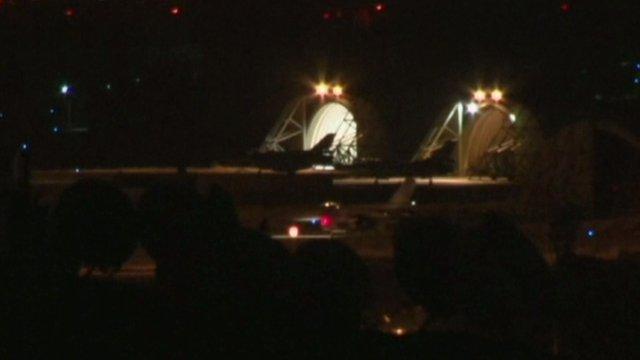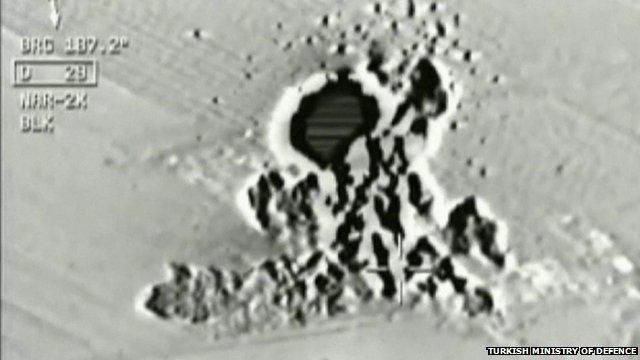Turkish opposition press fears new civil war
- Published

Most Turkish front pages report comments by PM Ahmet Davutoglu vowing to keep IS away from the country's border with Syria.
Turkey's air strikes on PKK Kurdish separatists have prompted fears in opposition newspapers of a renewed civil war, with some commentators calling for the militant Islamic State (IS) group to be the sole target.
Pro-government media, on the other hand, stress the country's right to self-defence.
Elsewhere, IS remains silent on the Turkish air strikes on its own positions close to the Turkish-Syrian border, while Syrian state media say Turkey is paying the price for "supporting" IS.
Dialogue or war?
The opposition press in Turkey is full of warnings against a Kurdish-Turkish conflict.
The centre-left Radikal daily blames the current situation on "the wrong policies pursued in Syria", and calls for a changed military and political strategy.
"This will only be possible by not marginalising the Kurds, either within or outside Turkey, by identifying our allies in the fight against IS in Syria, and maintaining a dialogue with them," writes Unal Cevikoz, external.
Mehves Evin, external paints an equally ominous picture in centrist Milliyet.
"Is it not time to ask those who defend a war with Kurds whether they really want to repeat the deaths and the suffering?," she writes. "We will defend peace until our last breath."
But pro-government Yeni Safak defends the decision to bomb PKK positions.
"In no other part of the world would the state turn a blind eye to weapons, terror and 'armed politics'," writes Hikmet Genc, external. "Actually, that is why the state exists."
The centre-right , external, meanwhile, accuses both the PKK leadership in northern Iraq and the Turkish pro-Kurdish leftist HDP party of trying "kill the once in a lifetime opportunity" of the peace process, and says only acting against them will give Turkey lasting peace.
Cynical manoeuvring?
In Iraqi Kurdistan, the ruling Kurdistan Democratic Party (KDP) - which in recent years has striven to maintain cordial ties with Turkish President Recep Tayyip Erdogan and his Justice and Development Party (AKP) - has refused to condemn the Turkish bombing of PKK bases.
In the press, Erbil-based journalist Rebwar Karim Wali is also critical of the PKK.
"PKK politics and bases in the Iraqi Kurdistan Region are just as illegitimate as the Turkish bombings of the region," he writes in the pro-KDP news portal , external.
But others - such as such as Farhan Jawhar, a member of the Iraqi Kurdish regional parliament, on the NRT TV, external website - criticise the attacks as cynical manoeuvring by Mr Erdogan and his party aimed at reversing the slide in its popularity in parliamentary elections in June.
Erdogan's 'folly'
Media outlets elsewhere in Iraq have simply ignored the attacks on PKK camps in northern Iraq. Others present them as attacks on PKK, not on Iraq.
The pro-government Al-Sabah News reports the attacks as a "Turkish breach of Iraqi sovereignty".
In Syria, the state-controlled press has reacted furiously to Turkey's bombing of IS positions.
The Al-Thawrah, external daily says Turkey "is paying the price for its support of terrorism" and that "Erdogan still continues his folly".
"Has Erdogan's government found itself in an impasse in its wager on Da'ish (IS) after the monster it bred began to snap at it?" asks Turki Saqr, external in another regime paper, Tishrin.
Islamic State itself still seems to be keeping its own counsel, with no official comment seen so far on its affiliated outlets.
IS's daily Al-Bayan radio bulletins have also completely ignored the apparent rift with Turkey.
The only sign of acknowledgment has been a report last week by the IS-linked "news agency" Aamaq on an exchange of fire between IS and Turkey on the border, although it did not mention air strikes.
BBC Monitoring reports and analyses news from TV, radio, web and print media around the world. You can follow BBC Monitoring on Twitter, external and Facebook, external.
- Published4 November 2016

- Published27 July 2015

- Published25 July 2015
